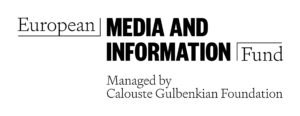Hungary PM says more talks needed on Finland, Sweden NATO bids
Viktor Orban said lawmakers had concerns, including over Finland's long border with Russia.

BUDAPEST — Hungarian Prime Minister Viktor Orban said on Friday that more parliamentary group talks were needed before lawmakers vote on the ratification of Finland and Sweden’s NATO membership bids which they will begin debating on Wednesday.
Sweden and Finland applied last year to join the trans-Atlantic defense pact after Russia invaded Ukraine, but Sweden faced unexpected objections from Turkey for harboring what Ankara considers to be members of terrorist groups.
Speaking on public radio, Orban said he had asked lawmakers of his nationalist Fidesz party to support the NATO bids, adding however that some deputies were “not very enthusiastic” about the expansion and sought further discussion.
Press officials for Fidesz did not respond to emailed questions about the possible timing and composition of any bilateral meetings to discuss the ruling party’s concerns, which surfaced for the first time this week after the ratification process had become stranded in parliament in July.
The Swedish Foreign Office did not immediately respond to a request for comment.
Orban, in power since 2010, has used his sweeping majority to overhaul major Hungarian laws with no resistance from his own lawmakers, hardly any of whom have publicly questioned or stood up against the party line over the past 13 years.
The parliaments of all 30 members of NATO have to ratify any membership bids for the alliance. Hungary’s lawmakers are scheduled to vote on the matter on March 6, according to the parliament’s agenda published online.
Orban added that in the end, it should be made clear that Hungary supports Finland and Sweden’s NATO membership, but said Turkey’s concerns regarding Sweden’s entry should also be heard, otherwise the expansion effort could fail.
“Regarding Turkey, they are also our allies, and therefore we need to hear their voice,” Orban said.
Turkey recently indicated it would approve only Finland for NATO membership, while Hungary says it has been delayed by a flurry of legislation required to unlock EU funds.
“We need to pay attention to Turkey as in the end, the entire process will stall. Unless there is a solution to Turkey’s problem, then the expansion could fail.”
Concerns
German Foreign Minister Annalena Baerbock last week called on Turkey and Hungary to allow Finland and Sweden to join NATO, stating she expects all NATO members to ratify their bids “without further delay.”
Orban said some ruling party lawmakers were concerned over NATO’s shared border with Russia extending by over 1,000 kilometers (620 miles), pointing to potential geopolitical risks arising from Finland’s entry.
Other lawmakers took issue with what Orban described as Finland and Sweden spreading “outright lies” about the health of democracy and the rule of law in Hungary.
Mujtaba Rahman, Europe Managing Director at Eurasia Group, said Orban’s maneuvers were likely aimed at enhancing his optics for various stakeholders, including Russia, Hungary’s key energy supplier, Turkey and his own electorate.
“It makes PM Orban look to be supportive of Ukraine,” he said, adding that the moves could be used as a possible means to delay ratification.
“…He and the party machine have been working for the last 12 months to undermine support for the EU, NATO and Ukraine and brainwash the Hungarian public into supporting Russia,” he said. “In short, it’s a political charade.”
Orban reiterated on Saturday that being a NATO member was “vital” for Hungary, but said his government would not send arms to Ukraine or sever its economic ties with Moscow, with Hungary lobbying hard against any EU sanctions on nuclear energy.
On Friday, Orban said Hungary, dominated by Moscow for decades before the collapse of communism, had a “moral obligation” to support the bid of the Nordic countries.
“I fall into the camp of those urging calm,” Orban said in describing the debate on NATO expansion among his lawmakers.
“I understand, moreover, I agree with the view of the parliamentary group that not all is well… It should be clear that in principle we support Sweden and Finland’s NATO entry. However, some serious discussions will be needed beforehand.”
Additional reporting by Niklas Pollard.
This article has been fact-checked by Arctic Today and Polar Research and Policy Initiative, with the support of the EMIF managed by the Calouste Gulbenkian Foundation.
Disclaimer: The sole responsibility for any content supported by the European Media and Information Fund lies with the author(s) and it may not necessarily reflect the positions of the EMIF and the Fund Partners, the Calouste Gulbenkian Foundation and the European University Institute.
